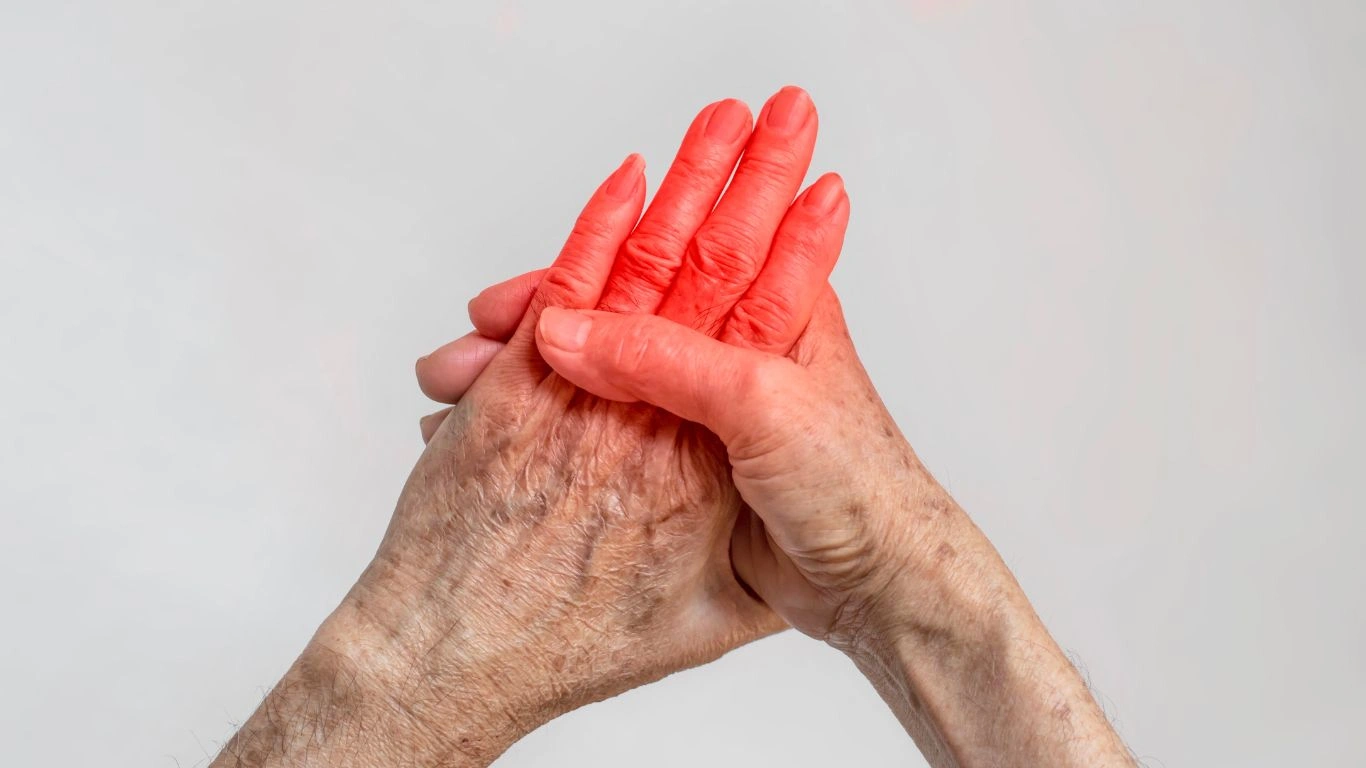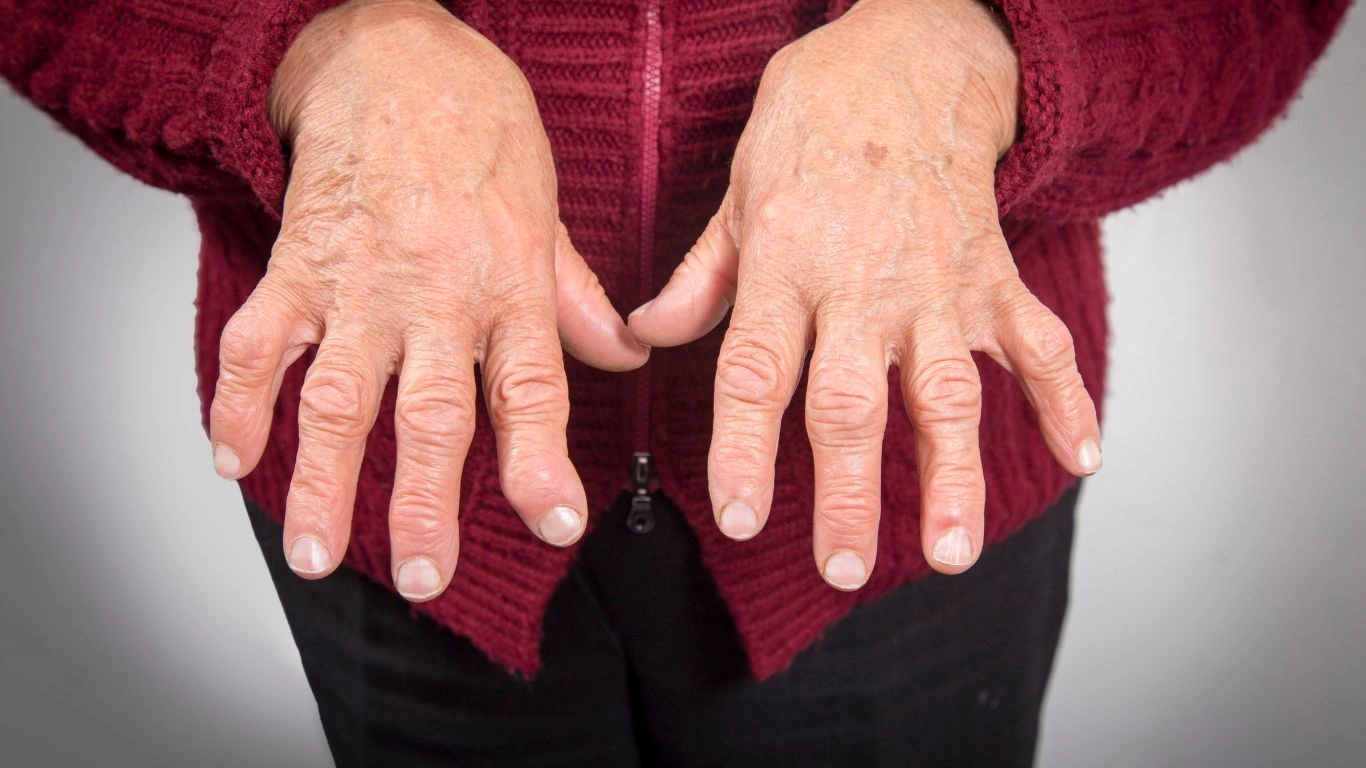Effective Ways to Reduce Inflammation Naturally in Rheumatoid Arthritis
Living with rheumatoid arthritis (RA) can feel like an uphill battle, but over the years, I’ve seen firsthand how certain lifestyle changes and natural methods can make a significant difference in managing inflammation and improving quality of life. As a Rheumatology Nurse Practitioner, I’ve worked closely with patients, helping them find ways to reduce inflammation naturally, alleviate pain, and regain control of their lives. In this post, I’ll share some of the insights I’ve gained, plus practical tips that can help you manage RA symptoms without relying solely on medication. If you’re looking to reduce inflammation naturally and improve your daily life, you’re in the right place.
Understanding Rheumatoid Arthritis: What You Need to Know
Before diving into natural methods to reduce inflammation, it’s important to understand what rheumatoid arthritis is and why inflammation plays such a big role in the condition. Rheumatoid arthritis is an autoimmune disease where the body’s immune system mistakenly attacks healthy joints, leading to inflammation, pain, and sometimes long-term joint damage. Unlike osteoarthritis, which is caused by wear and tear, RA often affects multiple joints symmetrically and can lead to swelling, stiffness, and even disability over time.
It’s easy to see how inflammation is at the heart of rheumatoid arthritis. When your immune system starts attacking your own tissues, it creates an inflammatory response, which causes redness, heat, swelling, and pain in the affected joints. Managing this inflammation is key to controlling symptoms and preventing further damage to the joints.

The Importance of Reducing Inflammation Naturally
Reducing inflammation is essential for anyone dealing with RA. While prescription medications can help control symptoms, many patients, including myself and some of my colleagues, prefer exploring natural ways to minimize inflammation as part of an overall wellness strategy. When inflammation is reduced, it can lead to less pain, improved joint mobility, and a better overall quality of life.
But why focus on natural methods? Aside from the fact that they can complement your medication regimen, natural approaches often come with fewer side effects. Plus, they can be integrated into daily life without much effort. From dietary changes to stress management techniques, there are plenty of ways to reduce inflammation without relying solely on drugs.
Diet and Nutrition: Fueling Your Body the Right Way
What you eat can have a direct impact on how much inflammation your body produces. Certain foods are known to trigger inflammation, while others have anti-inflammatory properties that can help manage RA symptoms. I’ve seen countless patients experience a significant improvement in their symptoms just by changing what’s on their plate. So, let’s dive into some of the foods that should be part of your diet if you’re aiming to reduce inflammation naturally.

Anti-Inflammatory Foods to Add to Your Diet
- Fatty Fish: Fish like salmon, mackerel, and sardines are rich in omega-3 fatty acids, which are known for their anti-inflammatory properties. Omega-3s can help reduce the production of inflammatory chemicals in the body.
- Leafy Greens: Vegetables like spinach, kale, and Swiss chard are packed with antioxidants and polyphenols, which can help reduce inflammation and protect the body’s cells.
- Turmeric: This spice contains curcumin, a powerful compound that has been shown to reduce inflammation and may even help in slowing down disease progression in RA.
- Ginger: Like turmeric, ginger has been used for centuries for its anti-inflammatory properties. It’s great for easing joint pain and can be easily added to teas, smoothies, or dishes.
- Olive Oil: Extra virgin olive oil is a staple in the Mediterranean diet, and it’s rich in oleocanthal, a compound that works similarly to nonsteroidal anti-inflammatory drugs (NSAIDs) in the body.
- Nuts and Seeds: Walnuts, flaxseeds, and chia seeds are great sources of healthy fats, antioxidants, and fiber. They can help lower inflammation markers in the body.
Foods to Avoid: Keep Inflammation in Check
While some foods can help reduce inflammation, others can make it worse. Over time, consuming the wrong foods can exacerbate RA symptoms and make it harder to manage inflammation. Here’s a list of foods you should aim to minimize or avoid if you’re dealing with rheumatoid arthritis:
- Processed Foods: Foods high in refined sugar, processed meats, and artificial ingredients can trigger inflammation in the body. Try to stick to whole, unprocessed foods as much as possible.
- Refined Carbs: White bread, pastries, and other refined carbs can spike your blood sugar levels, leading to increased inflammation.
- Trans Fats: These unhealthy fats, found in many packaged snacks and fried foods, are known to contribute to inflammation and joint pain.
- Alcohol: Excessive alcohol consumption can increase inflammation, and it can interfere with the effectiveness of RA medications.
Exercise: Moving to Reduce Pain and Inflammation
It may sound counterintuitive, but exercise is one of the most effective ways to reduce inflammation in rheumatoid arthritis. Many people with RA avoid physical activity due to fear of pain or stiffness, but staying active is actually one of the best ways to reduce symptoms and improve overall joint function.

The Benefits of Low-Impact Exercise
Low-impact exercises like swimming, yoga, and walking are excellent choices for RA patients. These activities help to improve joint flexibility, strengthen muscles around the joints, and promote blood flow, all of which can help reduce inflammation and improve mobility. Plus, exercise releases endorphins, which act as natural painkillers and mood boosters.
It’s important to start slowly and listen to your body. If you’re new to exercise or haven’t been active for a while, consult your doctor or a physical therapist to develop a plan that works for you.
Stress Management: The Mind-Body Connection
Chronic stress is another factor that can trigger inflammation. When you’re stressed, your body produces more of the stress hormone cortisol, which can lead to increased inflammation. Managing stress is not only good for your mental health but also essential for controlling RA symptoms.
There are several natural ways to manage stress, including mindfulness meditation, deep breathing exercises, and even simple activities like journaling or spending time in nature. Incorporating these practices into your daily routine can help keep your inflammation levels in check.
Herbal Remedies: Nature’s Power to Reduce Inflammation
As a nurse practitioner, I often see patients who want to take a more holistic approach to managing rheumatoid arthritis. One of the most common natural remedies I discuss is the use of herbal treatments. Over the years, I’ve found that certain herbs can really help calm the inflammation that’s central to RA symptoms, and many of them are easy to incorporate into your daily routine. Just like with any treatment, it’s important to consult with your healthcare provider before starting any new supplement or herbal remedy, especially if you’re already on medication for RA.

Popular Anti-Inflammatory Herbs
- Turmeric: You might be familiar with turmeric as a spice, but its active compound, curcumin, has strong anti-inflammatory properties. Studies have shown that turmeric can help manage joint pain and reduce swelling in RA patients. You can add it to meals, or take it as a supplement (often combined with black pepper to improve absorption).
- Ginger: Ginger isn’t just a great addition to tea—it has proven anti-inflammatory effects. Whether in a tea or as a supplement, ginger can help reduce joint pain and swelling. I’ve seen patients who swear by ginger when they need some relief from a flare-up.
- Boswellia (Frankincense): Boswellia is an herbal remedy that has been used for centuries to treat inflammation and pain. It’s particularly helpful for RA patients, as it helps to reduce swelling and pain in the joints. It’s available in capsules or extracts.
- Willow Bark: Often referred to as nature’s aspirin, willow bark contains salicin, which is chemically similar to aspirin. It has been shown to help reduce inflammation and pain, and it’s a great alternative for those who want to avoid pharmaceutical options.
How to Safely Use Herbal Remedies
Herbal remedies can be a powerful tool, but it’s crucial to approach them with care. First, always talk to your healthcare provider before adding any herbal supplement to your regimen. Herbs can interact with medications, especially blood thinners or immune-suppressing drugs, which are common in RA treatment plans.
Also, remember that not all herbal remedies are created equal. The quality of herbal supplements can vary widely, so look for reputable brands that offer standardized extracts. And like any treatment, consistency is key—herbs often work best when taken regularly over time.
Acupuncture and Acupressure: Ancient Techniques for Modern Pain Relief
Another non-traditional approach I’ve seen work wonders for RA patients is acupuncture. If you’re unfamiliar with acupuncture, it involves inserting tiny needles into specific points on the body to help stimulate energy flow and reduce pain. Many of my patients have reported significant reductions in pain and stiffness after a few acupuncture sessions.
Acupressure, which is similar to acupuncture but without the needles, can also be effective. By applying pressure to specific points on the body, acupressure helps to stimulate circulation and promote healing. Both acupuncture and acupressure focus on reducing pain and inflammation by targeting key points that influence the body’s energy flow.

The Benefits of Acupuncture
Acupuncture may help reduce inflammation by stimulating the body’s natural pain-relieving mechanisms. Research has shown that acupuncture can decrease levels of C-reactive protein (CRP), a marker of inflammation in the body, and help improve joint mobility. Some studies suggest that acupuncture may also help modulate the immune system, which is particularly important in autoimmune conditions like RA.
If you’re interested in acupuncture, I recommend finding a licensed acupuncturist with experience in treating rheumatoid arthritis. It’s also a good idea to discuss this treatment with your doctor, especially if you have any underlying conditions that need special attention.
Acupressure: A Gentle Alternative
If needles aren’t your thing, acupressure might be an excellent option for you. It works by applying pressure to certain areas of the body to help release tension and improve circulation. Similar to acupuncture, acupressure can help reduce pain, inflammation, and stress—key components of RA. It’s easy to learn and can be done at home with the help of instructional guides or an experienced practitioner.
Sleep: The Overlooked Factor in Inflammation Reduction
When was the last time you had a full night’s rest without tossing and turning? As someone who has worked with RA patients for years, I can’t stress enough how important sleep is in managing inflammation. Poor sleep can trigger inflammatory responses in the body, which can worsen RA symptoms.
Getting enough quality sleep helps your body repair itself, regulate hormone levels, and manage pain. Inadequate sleep, on the other hand, can increase stress hormones like cortisol, which can drive up inflammation. It’s not always easy for those with RA to get restful sleep, especially if joint pain keeps you awake at night. But there are a few strategies that can help improve your sleep quality.

Tips for Better Sleep with Rheumatoid Arthritis
- Establish a Sleep Routine: Try to go to bed and wake up at the same time every day, even on weekends. This can help regulate your body’s internal clock and improve sleep quality.
- Sleep in a Comfortable Position: If joint pain keeps you up at night, experiment with different sleeping positions. Some patients find relief by using supportive pillows to prop up painful joints.
- Limit Caffeine and Alcohol: Both caffeine and alcohol can disrupt sleep. Try to avoid consuming these substances, especially in the hours leading up to bedtime.
- Create a Relaxing Bedtime Routine: Take a warm bath, read a book, or practice relaxation techniques like deep breathing before bed to wind down.
- Stay Cool: Keeping your bedroom cool and comfortable can promote deeper, more restful sleep. Aim for a room temperature between 60-67°F (15-19°C).
By prioritizing sleep, you’re helping your body recover from inflammation and repair damaged tissues. Quality rest can be a powerful ally in your fight against rheumatoid arthritis, reducing flare-ups and improving your overall health.
Mind-Body Practices: Yoga, Meditation, and Rheumatoid Arthritis
When we talk about managing rheumatoid arthritis (RA) and reducing inflammation naturally, the mind-body connection plays a significant role. For many of my patients, practicing yoga and meditation has been a game changer. These techniques can help to reduce stress, which, as we’ve discussed earlier, is a major factor that can exacerbate inflammation and joint pain in RA. As someone who’s always loved teaching patients simple ways to integrate mind-body practices into their daily routine, I can confidently say that yoga and meditation are some of the most powerful tools in fighting RA.

The Role of Yoga in Reducing Inflammation
Yoga isn’t just about bending and stretching—it’s about tuning into your body, finding your center, and creating balance. For individuals with RA, it’s crucial to incorporate gentle movements that help increase flexibility and improve joint mobility. Yoga can help relieve stiffness, reduce pain, and promote overall well-being. I’ve seen countless patients benefit from regular practice, especially those who start with beginner-level poses.
Some of the benefits yoga offers for RA patients include:
- Increased joint flexibility: Gentle stretches help maintain or even improve flexibility in affected joints.
- Reduced stress: Through mindful breathing and relaxation, yoga helps lower stress levels, which can, in turn, reduce inflammation.
- Better posture: Yoga can help improve body alignment, which can alleviate stress on certain joints.
- Strengthening muscles: Strengthening the muscles surrounding the joints helps reduce pain and support joint function.
If you’re new to yoga, start slow and focus on gentle, restorative poses that don’t cause strain. There are many online classes designed for people with RA, so you can ease into it and gradually build your practice. A physical therapist or yoga instructor trained in working with RA patients can also help tailor a practice that’s right for you.
Meditation: A Simple Practice with Big Benefits
Meditation is another mind-body technique that has been shown to reduce inflammation by helping the body relax and release stress. I’ve worked with several patients who practice mindfulness or guided meditation to manage pain and reduce inflammation. Studies have shown that meditation can lower the body’s stress response and reduce the production of pro-inflammatory cytokines.
The best part? Meditation doesn’t require any special equipment, and you can do it anywhere. Whether you prefer sitting quietly in a chair or lying down, all it takes is a few minutes of focused breathing or a guided session to start feeling the benefits. And the more consistently you practice, the better the results.
Incorporating meditation into your daily routine can help you:
- Reduce stress hormones: Meditation helps lower cortisol, which in turn reduces inflammation.
- Manage pain: Mindfulness meditation can teach you how to manage pain without focusing on it too much, which is especially helpful in managing chronic conditions like RA.
- Improve sleep: Meditation is known for its ability to promote better sleep, which is crucial for inflammation control.
Supplements to Consider for Rheumatoid Arthritis
While diet and lifestyle changes are key, there are also several supplements that can help reduce inflammation and support joint health in individuals with rheumatoid arthritis. Many patients ask me about supplements, and while I always remind them to talk to their doctor before starting any new regimen, there are some that have shown promising results in RA management.
Common Supplements for RA Patients
- Omega-3 Fatty Acids: As mentioned in earlier sections, omega-3s from fish oil are fantastic for reducing inflammation. Supplementing with omega-3s can help lower levels of pro-inflammatory cytokines in the body.
- Vitamin D: Vitamin D is essential for immune function, and many people with RA are deficient in this crucial vitamin. Studies suggest that adequate vitamin D levels may help reduce inflammation and improve joint health.
- Glucosamine and Chondroitin: These supplements are often recommended for individuals with joint pain. While the evidence on their effectiveness for RA is mixed, some patients report improvements in joint pain and stiffness.
- Curcumin: The active ingredient in turmeric, curcumin, is available as a supplement and is well-known for its powerful anti-inflammatory properties. Curcumin supplements can help reduce the pain and swelling associated with RA.
- Ginger: Ginger, both as a supplement and in food form, has natural anti-inflammatory properties. It can help ease joint pain and stiffness and may even reduce the need for pain medications.
How to Choose the Right Supplement
With so many supplements available, it can be difficult to know which ones are right for you. The best approach is to work with your healthcare provider to choose supplements that are safe and effective for your individual needs. Here are a few things to consider:
- Quality: Choose high-quality supplements from reputable brands. Look for third-party testing to ensure the product contains what’s promised on the label.
- Dosage: Follow the recommended dosage on the label or as advised by your healthcare provider. More isn’t always better, and some supplements can interact with medications.
- Consistency: Like any natural remedy, supplements take time to show results. Be consistent and patient as you give them a chance to work.
Important Disclaimer
It’s important to note that while these natural methods can help reduce inflammation and improve joint health, they should not replace your prescribed medications unless advised by your doctor. Rheumatoid arthritis is a serious, chronic condition, and a comprehensive treatment plan—tailored to your specific needs—is essential for managing symptoms and preventing joint damage. Always consult your healthcare provider before making changes to your treatment plan, including adding new supplements or starting a new exercise regimen.
References and Further Reading
For more information on managing rheumatoid arthritis and reducing inflammation naturally, here are some trusted resources:
Remember, managing rheumatoid arthritis is a personal journey, and everyone’s experience with the condition is unique. By adopting a holistic approach that includes diet, exercise, stress management, and natural remedies, you can find what works best for your body and lead a healthier, more fulfilling life.

Tarra Nugroho is a dedicated Nurse Practitioner with a strong foundation in family and preventive care. She brings both compassion and clinical expertise to her practice, focusing on patient-centered care and health education. As a contributor to Healthusias.com, Tarra translates medical knowledge into clear, empowering articles on topics like women’s health, chronic disease management, and lifestyle medicine. Her mission is simple: help people feel seen, heard, and informed—both in the clinic and through the content she creates. When she’s not caring for patients, Tarra enjoys weekend hikes, plant-based cooking, and curling up with a good health podcast.







